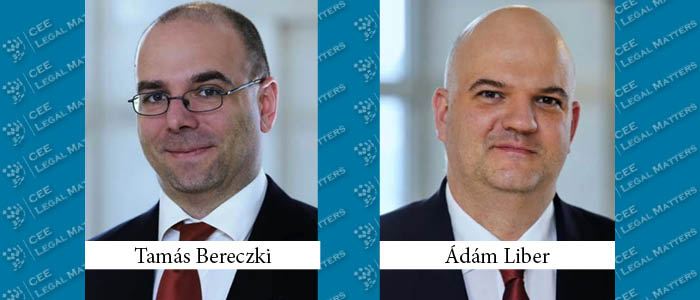Although abuse of the right to a leave of absence due to temporary impairment for work (sick leave abuse) is explicitly stated in the Labor Law as grounds for termination, in practice, terminating an employment contract on this basis is very difficult, even when abuse is obvious. Beyond the fact that the concept of sick leave abuse is not legally defined, employers face a host of formal and factual obstacles when attempting to determine abuse, resulting in losses for both employers and the state, which often bears the cost in cases of long-term sick leaves.
Of course, it is understandable and justified to protect employees’ rights and interests, prevent pressure, intrusion into privacy or arbitrary questioning of the validity of sick leave by employers. On the other hand, legal certainty dictates the need for a clear legal pathway to prove and penalize sick leave abuse.
Namely, to protect employees’ privacy, employers no longer have information about the code of illness causing the employee’s work incapacity, which is understandable. However, the employer cannot obtain any information from the National Health Insurance Fund as to whether the employee is still on sick leave or not. By law, the employee is only required to submit an initial medical certificate to the employer to start the sick leave, but not the subsequent documentation that extends it (known as in Serbian “doznake” or follow-up certificates). Generally, it is in employees’ interest to submit these during sick leave in order to receive compensation, but this is not always guaranteed.
In other words, an employer can obtain all information about the employee’s illness only directly from the employee. The first potential issue for the employer is determining whether the employee is indeed on sick leave (or is unjustifiably absent from work) if the employee does not submit the follow-up certificate or report from the medical board extending the sick leave.
There is also an issue when there are indications that the sick leave was granted without adequate basis or is being abused (defined in legal practice as using it contrary to its intended purpose, behaving in ways inconsistent with the diagnosis and prescribed therapy, or hindering recovery). According to the Labor Law and Health Insurance Law, employers have the following legal recourse in such cases:
- requesting a reassessment of temporary work incapacity through the National Health Insurance Fund;
- referring the employee to a medical center chosen by the employer to determine sick leave abuse; and
- determining sick leave abuse in accordance with internal company policy
The first two options offer limited prospects for resolving this issue, as, in practice, doctors tasked with determining the invalidity or abuse of sick leave generally do not contradict their colleagues who initially approved the leave for employees. Additionally, doctors assessing sick leave abuse are bound by the medical documentation that served as the basis for granting the leave and by their examination of the employee as a patient. Depending on the diagnosis, employees can often cite various health problems or symptoms that are nearly impossible to objectively verify (e.g., anxiety, fatigue, drowsiness, workplace stress—commonly referred to as burnout, etc.). Therefore, it is unlikely that an employer will be able to establish sick leave abuse through medical evaluations. However, these procedures can still have a preventive effect in certain situations by discouraging future abuse.
As a last resort, the employer may attempt to establish sick leave abuse internally, based on the general act or company policy. It is advisable for company policy to include provisions that regulate the process of determining sick leave abuse (procedure, responsible entity, etc.) or to add such provisions if they are absent. Although not explicitly outlined in the law, this could involve forming a special committee to investigate the circumstances of sick leave abuse or hiring third parties (e.g., private investigators) to gather information, though judicial practice on this engagement is yet to be clearly defined. However, even all findings from such investigations, even if unequivocally pointing to behavior incompatible with sick leave, may not necessarily be accepted as proof of abuse by the court.
For instance, according to legal precedents, if it is established that an employee appears in public places, travels, and generally behaves as if they are not sick, this may not be considered as sick leave abuse if the medical report does not explicitly prescribe rest or bed rest, or if this behavior does not prevent recovery. While this perspective has some basis, it places an unjustifiably high burden of proof on the employer, given that certain behaviors are clearly incompatible with sick leave regardless of the diagnosis or prescribed therapy. Additionally, according to the case law, even if an employee performs certain tasks during sick leave, whether the same or different from those for the employer (e.g., as a contractor or through external engagements), this may not constitute abuse if it is not proven that it hinders recovery.
As the employer does not have access to the employee’s medical documentation and cannot know the reason for the sick leave or the prescribed treatment, they are not in a position to prove that specific behaviors impede recovery, particularly with illnesses related to stress or neuroses, even when certain behaviors are clearly incompatible with sick leave.
Due to the lack of information and challenges in proving sick leave abuse, employers always face a certain risk when initiating termination proceedings on this basis.
Therefore, we recommend that each potential case of sick leave abuse be carefully analyzed with a mandatory review of current case law and that such grounds for termination be established primarily through internal procedures, aligned with the employer’s general act, which should contain appropriate procedural provisions (while not excluding proceedings before medical bodies in certain cases). In cases of termination based on sick leave abuse, a certain level of risk of subsequent legal challenges cannot be practically excluded (even when all circumstances strongly suggest abuse). This risk is sometimes significant, considering the potential length of court proceedings and the possible consequences.
This text is written for informational purposes only and does not constitute legal advice. We are at your disposal for any additional information.
By Milorad Glavan, Partner, DNVG Attorneys























